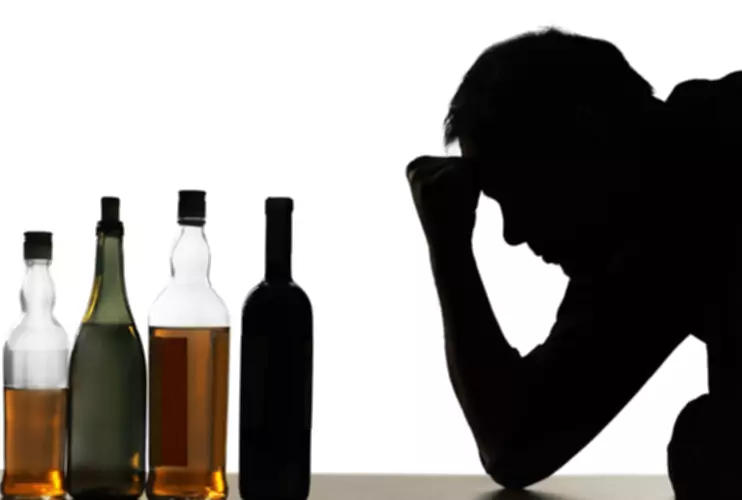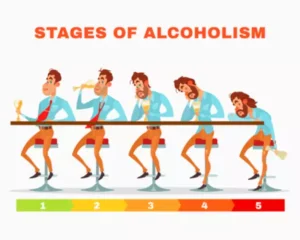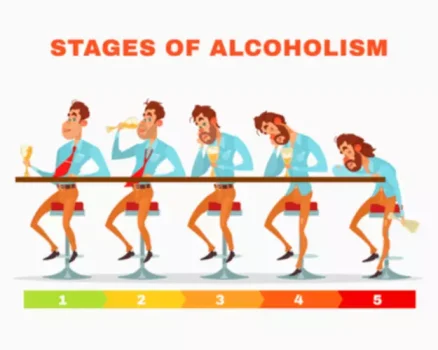Sober living
The Eye-Opening Science Behind Alcoholic Rage FHE Health

Medical detox programs are often the first stage in a comprehensive addiction treatment program. These programs usually last 5-7 days on average and commonly use medications to manage difficult physical and emotional withdrawal symptoms. In addition to potential mental health disorders related to difficulties managing anger, there are several physical side effects of unchecked and chronic anger.
- Specifically, it found that problematic drinkers may be more likely to attend to aggressogenic stimuli while intoxicated, and that is, they were more likely to experience certain cues as aggressive.
- What this means is that people whose personalities make them naturally quicker to become angry than others are even more likely to lose control under the influence of alcohol.
- Alcoholic rage syndrome refers to a pattern of intense anger and aggression triggered by alcohol consumption.
De-escalation Strategies
The information we provide is not intended to be a substitute for professional medical advice, diagnosis or treatment. It should not be used in place of the advice of your physician or other qualified healthcare provider. The Recovery Village aims to improve the quality of life for people struggling with substance use or mental health disorder with fact-based content about the nature of behavioral health conditions, treatment options and their related outcomes. It should not be used in place of the advice of your physician or other qualified healthcare providers. In line with this, using a sample of 85 countries, Weiss et al. (2018) reported no association between alcohol consumption level and homicide rates; however, they found a positive association between hazardous drinking pattern and homicide rates.
How to Cope with an Alcoholic Spouse
But entering treatment is the best way to show the people you’ve harmed with your anger that you’ve made a commitment to change. When they aren’t under the influence, you can try speaking openly with them about how their actions make you feel, how they’re affecting your family and why something needs to change. Many people with “angry drunk” tendencies also end up on the wrong side of law. The lack of inhibitions that causes them to lose their temper can lead to bar fights, road rage, impulsive violence (even against friends and loved ones) and other events that may cost them a night in jail or worse.
Reduced consideration for consequences

Becoming angry can feel like a way to regain control, because it’s an emotion in our power. To avoid reacting with anger, it’s important to identify what alcoholism and anger is and isn’t in our control, and manage our expectations accordingly. It’s important to distinguish that stopping drinking doesn’t cause intense emotions like anger to arise. Instead, getting sober takes away the numbing effect of alcohol, allowing these naturally occurring feelings to resurface all at once.

Getting active can help release the physical tension that comes with anger, as well as give you a boost in endorphins. This technique is simple yet effective for when anger starts to feel overwhelming. This will give your brain time to regain its rational thinking and assess the full situation before reacting. https://ecosoberhouse.com/ Alcohol use and anger can both be treated using psychotherapy approaches rooted in cognitive behavioral therapy (CBT). Support groups such as Alcoholics Anonymous (AA) and Self-Management And Recovery Training (SMART) are open to anyone with a substance use disorder. The goal of outpatient treatment is to provide therapy, education, and support in a flexible environment.
Stress, Alcohol Craving, and Binge Alcohol Intake

The co-treatment of alcohol recovery and anger management can be a very individualized process that may change according to your needs. Your treatment will depend on the role alcohol plays in your life and how present anger is during your everyday lived experience. Understanding the link between anger and alcoholism involves recognizing how emotions influence human biology and the negative impact of anger on our lives and relationships. Think of anger as an iceberg, where what’s visible, like stern looks or raised voices, is just the tip. Below the surface, hidden emotions such as grief, fear, shame, and embarrassment often fuel anger. Anger is rarely an isolated emotion, shedding light on its connection to alcoholism.
Guiding the person to a quiet environment
- To avoid reacting with anger, it’s important to identify what is and isn’t in our control, and manage our expectations accordingly.
- Anger, aggression, and hostility seem like common terms that are related to each other.
- Suddenly, the person they know and care for is a much different, angrier person — short-tempered, abusive and often violent.
- The connection between alcohol and rage can be understood by looking at changes in the brain.
- Below the surface, hidden emotions such as grief, fear, shame, and embarrassment often fuel anger.
Alcohol affects brain chemistry by altering neurotransmitters, which manage our mood and impulses. It decreases inhibition and can increase stress hormones like cortisol, making some individuals more prone to anger and aggression when drinking. Sixty-eight percent of the dependent and abstainers’ perceived anger as negative emotion and 76% in control perceived it as negative. Majority of the dependent and abstainers attributed it to personal reasons (persisting irritation, frustration, negative attitude toward the alcohol users, decrease communication with others). 60% of the dependent and abstainers experienced it significant impact on family (decrease communication with wife, frequent fights) and workplace area (loss of job and conflict with employers).
Outpatient treatment is less intensive than inpatient treatment or partial hospitalization programs. They are best for people who have a high motivation to recover, but cannot leave their responsibilities at home, work, or school. PHPs accept new patients, and people who have completed an inpatient program and require additional intensive treatment. Alcohol severely decreases cognitive function, which makes it harder to problem-solve, make safe decisions, and control aggression. The existence of an angry “crazy drunk person” is often featured in TV shows and movies because of the rising drama and action they bring to an entertaining storyline.
Why Does Alcohol Cause Rage?
Our daily research-backed readings teach you the neuroscience of alcohol, and our in-app Toolkit provides the resources and activities you need to navigate each challenge. In other words, we’re likely to do things — including giving others an earful as soon as we feel irked — without thinking about the potential fallout. We might also misread social cues and lash out in response to perceived slights, nonexistent threats, or frustrations. Researchers found that participants who were less inclined to think about the future were more inclined to deliver shocks longer and harder, but especially if they were drunk.


Leave a reply